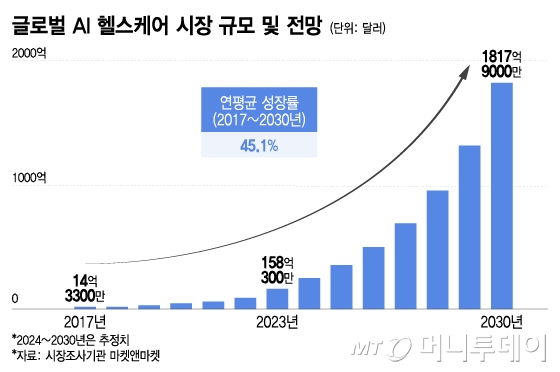주요 20개국(G20) 재무장관과 중앙은행 총재들은 지난 4~5일 영국 런던에서 회담을 개최하고 글로벌 금융 규제를 강화하는 큰 틀의 6개 항에 합의했다.
여기에는 은행들의 과도한 보너스를 규제하고 은행들의 자본 확충 증대 노력 등이 포함됐다.
다음은 G20 재무장관 회담의 금융 개혁에 대한 성명서 전문.
Finance ministers and central bank heads from the G20 nations met in London on Friday and Saturday to discuss the next steps in tackling the worst financial crisis since World War Two.
Alongside the communique summarising their conclusions, they issued the following ”Declaration on further steps to strengthen the financial system”:
We, the G20 Finance Ministers and Central Bank Governors, reaffirmed our commitment to strengthen the financial system to prevent the build-up of excessive risk and future crises and support sustainable growth.
We have made substantial progress in delivering our ambitious plan, which will ensure a robust and comprehensive framework for global regulation and oversight. The Financial Stability Board and the Global Forum on Transparency and Exchange of Information have expanded their mandate and membership. The regulatory bodies have agreed to more stringent capital requirements for risky trading activities, off-balance sheet items, and securitised products; they have developed proposals to address procyclicality, issued important principles on compensation and deposit insurance, and established over thirty supervisory colleges.
But more needs to be done to maintain momentum, make the system more resilient and ensure a level playing field, including the following actions:
1. Clear and identifiable progress in 2009 on delivering the following framework on corporate governance and compensation practices. This will prevent excessive short-term risk taking and mitigate systemic risk, on a globally consistent basis building on and strengthening the application of the FSB principles:
● greater disclosure and transparency of the level and structure of remuneration for those whose actions have a material impact on risk taking;
● global standards on pay structure, including on deferral, effective clawback, the relationship between fixed and variable remuneration, and guaranteed bonuses, to ensure compensation practices are aligned with long-term value creation and financial stability; and,
● corporate governance reforms to ensure appropriate board oversight of compensation and risk, including greater independence and accountability of board compensation committees.
We call on the FSB to report to the Pittsburgh Summit with detailed specific proposals for developing this framework, which could be incorporated into supervisory measures, and closely monitoring its delivery. We also ask the FSB to explore possible approaches for limiting total variable remuneration in relation to risk and long-term performance. G20 governments will also explore ways to address non-adherence with the FSB principles.
2. Stronger regulation and oversight for systemically important firms, including: rapid progress on developing tougher prudential requirements to reflect the higher costs of their failure; a requirement on systemic firms to develop firm-specific contingency plans; the establishment of crisis management groups for major cross-border firms to strengthen international cooperation on resolution; and strengthening the legal framework for crisis intervention and winding down firms.
3. Rapid progress in developing stronger prudential regulation by: requiring banks to hold more and better quality capital once recovery is assured; introducing countercyclical buffers; developing a leverage ratio as an element of the Basel framework; an international set of minimum quantitative standards for high quality liquidity; continuing to improve risk capture in the Basel II framework; accelerating work to develop macro-prudential tools; and exploring the possible role of contingent capital. We call on banks to retain a greater proportion of current profits to build capital, where needed, to support lending.
4. Tackling non-cooperative jurisdictions (NCJs): delivering an effective programme of peer review, capacity building and countermeasures to tackle NCJs that fail to meet regulatory standards, AML/CFT and tax information exchange standards; standing ready to use countermeasures against tax havens from March 2010; ensuring developing countries benefit from the new tax transparency, possibly including through a multilateral instrument; and calling on the FSB to report on criteria and compliance against regulatory standards by November 2009.
5. Consistent and coordinated implementation of international standards, including Basel II, to prevent the emergence of new risks and regulatory arbitrage, particularly with regard to Central Counterparties for credit derivatives, oversight of credit ratings agencies and hedge funds, and quantitative retention requirements for securitisations.
6. Convergence towards a single set of high-quality, global, independent accounting standards on financial instruments, loan-loss provisioning, off-balance sheet exposures and the impairment and valuation of financial assets. Within the framework of the independent accounting standard setting process, the IASB is encouraged to take account of the Basel Committee guiding principles on lAS 39 and the report of the Financial Crisis Advisory Group; and its constitutional review should improve the involvement of stakeholders, including prudential regulators and the emerging markets.
다음은 이번 G20 재무장관 회담의 일반 성명
1. We, the G20 Finance Ministers and Central Bank Governors, met ahead of the Pittsburgh Summit to assess our progress in delivering the Global Plan for Recovery and Reform and agree further actions to ensure sustainable growth and build a stronger international financial system. We reiterated the need for swift and full implementation of all the commitments made at the Washington and London Summits and have agreed the further necessary steps to strengthen the financial system, as set out in the accompanying declaration.
2. Our unprecedented, decisive and concerted policy action has helped to arrest the decline and boost global demand. Financial markets are stabilising and the global economy is improving, but we remain cautious about the outlook for growth and jobs, and are particularly concerned about the impact on many low income countries. We will continue to implement decisively our necessary financial support measures and expansionary monetary and fiscal policies, consistent with price stability and long-term fiscal sustainability, until recovery is secured.
3. We must build on what we have already achieved and tackle the significant challenges that lie ahead. It is vital for growth that we act to support lending, including dealing with impaired assets and conducting robust stress tests where necessary. We must promote employment through structural policies, active labour market policies, and training and education. We will work to address excessive commodity price volatility by improving the functioning and transparency of physical and financial markets and promoting a closer dialogue between producer and consumer countries. We welcome the swift implementation of the $250bn trade finance initiative and reaffirm our commitment to fight all forms of protectionism and to reach an ambitious and balanced conclusion to the Doha Development Round.
4. We agreed the need for a transparent and credible process for withdrawing our extraordinary fiscal, monetary and financial sector support as recovery becomes firmly secured. Working with the IMF and the FSB we will develop cooperative and coordinated exit strategies, recognising that the scale, timing and sequencing of actions will vary across countries and across the types of policy measures.
5. We will work to achieve high, stable and sustainable growth, which will require orderly rebalancing in global demand, removal of domestic barriers and promotion of the efficient functioning of global markets. The need to combat climate change is urgent, and we will work towards a successful outcome in Copenhagen.
6. We have made significant progress in strengthening the IFIs, but more needs to be done. We are close to completing the delivery of $850 billion of additional resources agreed in April, including an expanded, more flexible New Arrangement to Borrow; and $50bn to support social protection and safety nets, boost trade and safeguard development in low income countries. We welcome the overhaul of the IMF’s lending facilities. We encourage the Multilateral Development Banks to make full use of their balance sheets and reaffirm our commitment to ensure they have appropriate capital, recognising that they are fully on track to deliver $100bn of additional lending. In the period ahead we need to focus on providing resources to low income countries to support structural reforms and infrastructure development.
7. We look forward to prompt implementation of the 2008 IFI governance reforms, and will complete World Bank reforms by Spring 2010 and the next IMF quota review by January 2011. We recognise that the IMF should remain a quota-based organisation; and as part of the reforms, the voice and representation of emerging and developing economies, including the poorest, must be significantly increased to reflect changes in the world economy. To achieve this we look forward to substantial progress in Pittsburgh. We also reaffirm our commitment to increase accountability, strengthen the involvement of Fund Governors in strategic oversight, and agree to move to an open, transparent and merit-based selection of IFI management. To improve the role and effectiveness of the Fund in supporting stronger cooperation and ensuring a more sustainable global economy and international financial system, candid, even-handed, and independent surveillance will be vital. We call on the IMF, working with other international institutions, to continue assessing our actions to secure a sustainable recovery.
- 2009.09.06 11:15
|
<저작권자 © ‘돈이 보이는 리얼타임 뉴스’ 머니투데이. 무단전재 및 재배포, AI학습 이용 금지>
|











!["네 남편이 나 사랑한대" 친구의 말…두 달 만에 끝난 '불같은' 사랑 [이혼챗봇]](https://thumb.mt.co.kr/11/2024/09/2024091814092355964_2.jpg/dims/resize/100x/optimize/)







!["더 못 죽인 게 한" 섬뜩한 웃음…'살인 공장'까지 만든 악마들[뉴스속오늘]](https://thumb.mt.co.kr/11/2024/09/2024091317451143015_1.jpg/dims/resize/100x/optimize/)
![고속도로 갓길에 노인이…집주소 보고 깜짝, 시민들이 도왔다[영상]](https://thumb.mt.co.kr/11/2024/09/2024091905084433800_1.jpg/dims/resize/100x/optimize/)





















!["녹아내린 계좌, 살아났다"…반도체주 급등에 안도의 한숨[서학픽]](https://thumb.mt.co.kr/10/2024/09/2024091415060725088_1.jpg/dims/resize/100x/optimize)
![짓밟고 헤어드라이기 학대…여행가방에 갇혀 숨진 9살 의붓아들 [뉴스속오늘]](https://thumb.mt.co.kr/10/2024/09/2024091016570375164_1.jpg/dims/resize/100x/optimize)



!['생리대', 남자가 입어봤다[남기자의 체헐리즘]](https://thumb.mt.co.kr/10/2024/08/2024082322191587406_1.jpg/dims/resize/100x/optimize)







!["꼭 가야 해" 사람 가득 실은 배 30분 만에 침몰…292명 대참사[뉴스속오늘]](https://thumb.mt.co.kr/10/2023/10/2023100611053583558_1.jpg/dims/resize/100x/optimize)

![영하 13도, 길냥이 죽음 막을…'얼지 않는 물그릇'[남기자의 체헐리즘]](https://thumb.mt.co.kr/10/2024/01/2024012701364573421_1.jpg/dims/resize/100x/optimize)

















![미 항모전단 vs 중 미사일, 중 상륙전대 vs 대만 화력, 결과는? [PADO 미중해전-대만전쟁 통합본]](https://i1.ytimg.com/vi/lEr72j77ZzU/hqdefault.jpg)
!["한동훈 대권, 기대감 깎였다" vs "오세훈, 대권후보 되기 어려워" [터치다운the300]](https://i3.ytimg.com/vi/6Z2dBt9IFyQ/hqdefault.jpg)
![폼페이오 '한국 핵무장은 합리적', 1년 내 가능? [PADO 편집장의 '미국 대 미국']](https://i4.ytimg.com/vi/wvchef2TQTk/hqdefault.jpg)





![미리보는 2027년 대선 토론?...'계엄괴담'만 남긴 한동훈 이재명 회담, 실익은 누가 챙겼나 [터치다운the300]](https://i2.ytimg.com/vi/YRsKqtYrJb4/hqdefault.jpg)
![미국은 서울 지키기 위해 LA 포기할 수 있을까 [PADO 편집장의 '미국 대 미국']](https://i3.ytimg.com/vi/Ns3p-Y71aq4/hqdefault.jpg)

![푸틴의 허를 찌른 젤렌스키의 야심찬 대역습, 그러나..."우크라, 서방 지원 끊기면 한 달도 못버텨" [터치다운the300]](https://i4.ytimg.com/vi/_t2xAxdgJrE/hqdefault.jpg)




![한국엔 '전략 무기'가 없다. 전쟁 종결시킬 절대 무기는? [PADO 편집장의 '미국 대 미국']](https://i2.ytimg.com/vi/AFS2AKOChvU/hqdefault.jpg)

![尹의 애착남 "한동훈 언플, 세련되지 못해...윤통 망하라고 대표 시킨 거 아냐" [터치다운the300]](https://i1.ytimg.com/vi/HQBWVXAYxNo/hqdefault.jpg)
